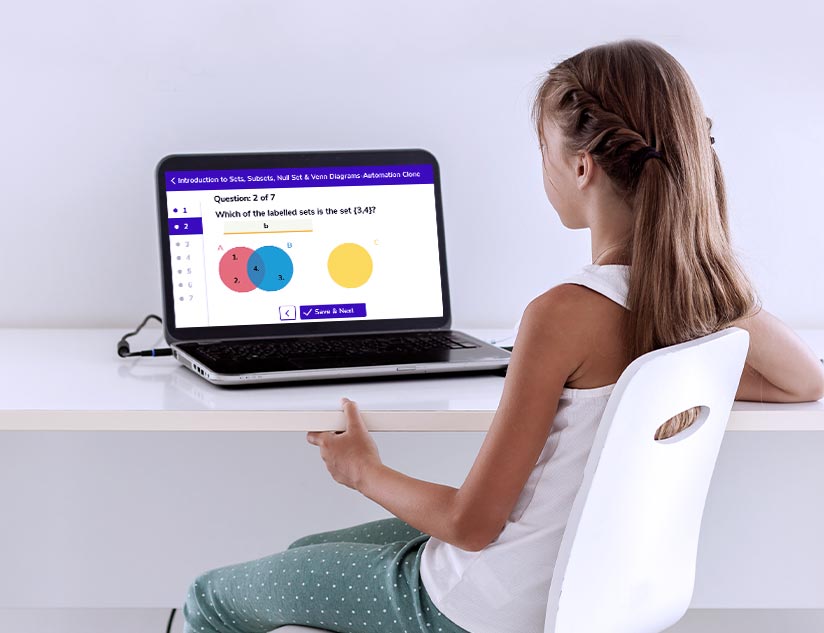Digital Assessments: Putting Students First in Testing and Evaluation
January 5th, 2024
In recent years, there has been a growing focus on student-centered education and the importance of digital assessments. Modern education prioritizes inclusion, equity, and differentiated learning delivery, and extending the same principles to testing and feedback is critical for an effective learning cycle. Transitioning from paper-based to digital assessments provides numerous benefits for students, including greater flexibility, personalization, and improved performance.
Benefits of Digital Assessments
Digital tools provide flexibility and personalized scheduling. These tools also enable the customization of exams according to learning needs. Remote testing options help alleviate exam-related stress and improve performance.
Student performance is assessed more effectively when tests are tailored to individual learning goals and assessment needs. AI-powered assessment tools ensure that all types of skills and knowledge are evaluated seamlessly. For instance, language assessments, voice recording, and AI assistance facilitate the evaluation of listening, speaking, reading, and writing skills.
Examples of Digital Assessment Platforms
Digital assessments are no longer limited to multiple-choice questions. Modern testing tools support diverse question types, including fill-in-the-blanks, drag-and-drop, objective questions, match-the-following, grammar checks, assistive tests, etc. Adopting gamified experiments, audio recorders for descriptive answers, conference-based models for interactive questions, interview-based discussions, and viva elevates the test-taking experience.
Online Assessment Platforms are Revolutionizing the Testing Experience
Online examinations offer multiple benefits for students. Here’s a look.
Accessibility and Flexibility
With the anytime-anywhere model, students can attempt assessments from anywhere and at their preferred time. Modern technology providers optimize test delivery for varied devices, offering a seamless examination experience to learners. Furthermore, hybrid models with paper + digital tests can provide greater flexibility for regions with poor internet access.
The adaptable appearance of text and videos makes testing more accessible for students with dyslexia and other learning disabilities, fostering equity. Similarly, text-to-speech conversion can allow students with vision impairment to attempt exams seamlessly and respond via a mic.
Improve Remote Learning Experience
Digital tests offer a more engaging experience. Embedding graphics, videos, and student-run interactive progress models builds a culture of active examination. Another benefit is that with regular and multi-style usage of digital devices, students are better prepared to handle jobs and tasks in the real world.
Digital Tools for Educators
Digital tools are equally beneficial for educators in expediting feedback, optimizing exam evaluation efficiency, and facilitating unbiased grading.
Assessment creation tools assist teachers by suggesting questions and automating question selection based on student progress for formative assessments. AI-powered and compliance-ready tools ensure that all skill and knowledge achievement levels are adequately tested.
Analytical tools use student performance and engagement data to provide deep insights into learning material efficacy, teaching methodology adequacy, and curriculum sufficiency.
Additionally, automated evaluation prevents personal biases from creeping in and improves marking quality. Setting clear assessment goals, guidelines, and expectations facilitates greater transparency in assessments.
Enhance Student Experience
Digital exams play a crucial role in eliminating exam-related stress, which ultimately helps improve student performance. Moreover, NLP-based evaluation automation provides immediate feedback, which enhances learner engagement and provides reinforcement suggestions and resources to strengthen learning.
However, certain challenges need to be addressed by educators:
- Training educators to effectively use digital tools for assessment design and administration
- Eliminating technology-related apprehension among students
- Ensuring that students have access to the internet and the required devices and tools
- Educating parents about the benefits of transitioning to digital assessments
The Future of Digital Assessments
Along with the evolution of machine learning and natural language processing technologies, a key driver for online assessments is their ability to offer a more sustainable alternative to paper-based exams.
The global assessment market size is projected to grow at a CAGR of 9.7% from 2023 to 2030. The data insights from assessments will be used to improve performance and make informed decisions regarding processes, individual growth, and the overall organizational impact of various initiatives.
Machine learning, big data, and analytics will be key technologies facilitating a transition to the optimal use of online assessments.
Keeping Pace With Evolution
Digital assessments improve equity, accessibility, flexibility, and the overall experience for teachers and students. Adopting digital assessments is paramount for educational institutions to maintain relevance in the long term. But gaining an edge over the competition requires being the torchbearer of transformation.
Education providers and teachers must embrace modern digital assessment tools and adapt to newer forms of conducting exams, providing feedback, and administering remedial learning. Contact the experts at MagicBox™ to learn more about how modern testing techniques can improve learning achievement and facilitate enhanced education delivery via data-driven insights.













